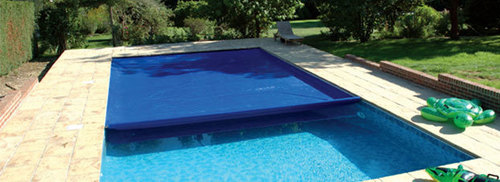The importance of working with a pool cover in your swimming pool should not be dismissed. Whilst a swimming pool can't function satisfactorily without a pump or a filter, it's possible to run your pool without a solar cover. However, the benefits of a cover much outweigh the cost of buying one single. If you are looking for the best automatic retractable pool covers or pool cover reel & roller then you visit online sources.
For pool managers, environmental considerations are becoming more and more important. This is particularly true in areas like southern Spain at which the demand for water is just starting to outstrip the area source. In such areas, the ever increasing cost of domestic water will easily justify buying a pay.

The largest source of energy loss in a swimming pool is via the flow of water out of the pool surface. A solar cap acts as a barrier between the water and the nearby atmosphere, virtually eliminating evaporation and also reducing chemical consumption up to 60 percent, whilst increasing water temperature by up to 80c, preventing algae expansion and reducing debris contamination.
Solar covers are made from a high quality "bubble wrap" type of stuff. It differs from typical packaging bubble wrap since it's quite a bit thicker and comprises chemical inhibitors to decrease degradation from Ultraviolet Light and Chlorine attack. An insulating layer is effortlessly made by the bubbles, which really helps prevent heat loss through evaporation, and the translucent character of the fabric allows the sun's rays to create a greenhouse effect, raising the water flow.
To obtain the maximum benefit from your bubble pool cap, it needs to really be in the pool at all times other than if somebody is swimming. It's dangerous to float under the cover, it must be removed while the pool is currently in use. During your daytime, the cover helps raise the water temperature, whilst at night it is helpful to minimize evaporation. Most evaporation occurs through the nighttime, once the gap between water and air temperature is at its greatest.